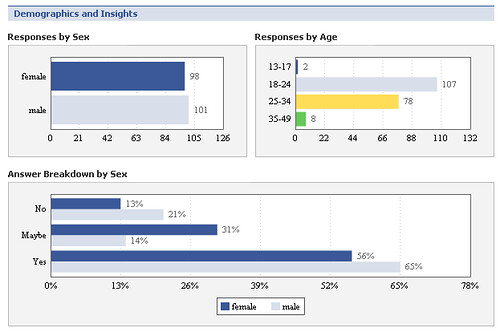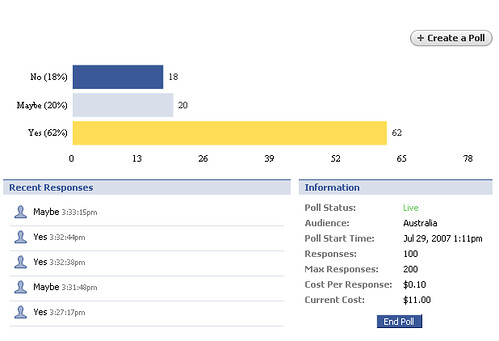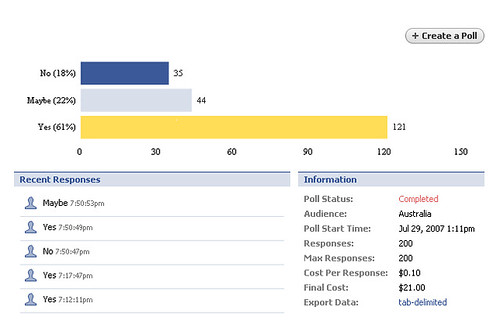Tim Bull has recently written an interesting discussion point on when is the right time to innovate. In a post titled “Steam engine time“, he asks:
If innovation is a process of the right idea, in the right place and at the right time, how do we judge what the right time is and measure what is going on around us to hit the right spot?
Some would say luck has something to do with it, although I believe that is the perception from an outsiders point of view. In my eyes, a core set of attributes are required for innovation.
Consider this quote from Calvin Coolidge, 30th president of USA:
Nothing in the world can take the place of Persistence. Talent will not; nothing is more common than unsuccessful men with talent. Genius will not; unrewarded genius is almost a proverb. Education will not; the world is full of educated derelicts. Persistence and determination alone are omnipotent. The slogan ‘Press On’ has solved and always will solve the problems of the human race.
I think Tim is wrong to ask when is the right time, because innovators understand their environment, adapt to it – and then push until they get there. Persistence and adaptability, in my eyes, are two crucial aspects needed in a person or even a country or company, for it to successfully move forward. However whilst persistence is key – you need determination to push forward despite the barriers you are going to encounter – adaptability is the real secret to successfully innovating.
A case-study: multiculturalism in a flat world
Although I was born and bred in Australia, I have been brought up under a very strong Greek influence. With an Australian-born father, and a fresh-off-the-boat Greek mother – I have lived a life straddled in two cultures. Going to an Anglo-Saxon school, yet at the same time doing Greek classes at 9am Saturday (but leaving early for my schools footy games) – I grew to resent Australia’s multiculturalism policy. Without going into too much detail because this will turn it into a political discussion and detract from the point I wish to make – I disliked the fact that Greeks in Australia refused to integrate into the local culture. The Australian government’s stance of officially supporting Multiculturalism, which does things like pay for that Saturday morning tuition, was to me a stupid policy.
Fast forward to 2005, when I visited the Balkans as part of my nine months traveling around Europe. Serbia’s story is one of the saddest stories in Europe. Walking around the city of Belgrade, interacting with its inhabitants, and just generally experiencing Serbia – you realise you have come across a hidden gem in Europe. Yet once you look at the statistics and talk to some of the educated, you understand otherwise: a basket case situation that has little hope.
Serbia, like a lot of other countries I discovered in my travels, have a cultural problem: they can’t let go of the past. Millions of people have died over differing interpretations of history. The Republic of Macedonia’s identity is entirely staked on the fact they are situated on the lands of Alexander the Great. Identity to the nation states of Europe, is in history. And challenges to that history, and their identity, has led to some stupid wars affecting millions of innocent lives.
So guess what? I now think multiculturalism is the best thing my country could ever do, for the simple fact we can never have a fixed identity – what it meant to be Australian 50 years ago looks very different from what it looks like now. In Europe, identity is based on ethnicity with a fixed identity tied to history, language and a religion. In Australia, our identity isn’t allowed to be based on a certain ethnicity, and forces us to find common ground on what really matters like our way of life. If it wasn’t for the policy of Multiculturalism, we would be turning into one of these static nation states within Europe who become fixed as a certain point of time. The Greeks are still mourning over the Turks capturing the Great City of Constantinople from them in 1453 (which is why Tuesday is the unlucky day of the week for them). Yet for the countries like Australia, who don’t have much of a history – they are not locked – and consequently look forward, rather than back. Multiculturalism is a crucial ingredient to our success, because with all that diversity, it means we are constantly evolving our culture to the times without any one group fixing it. And with a globalised word, Australia’s ability to adapt to circumstances will be a key competitive advantage we have over countries.
If you don’t agree with me, have a read of Thomas Friedman’s The World is Flat – a book a entrepreneur/intrapreneur suggested I read. This guy who told me about the book was a German from Argentina, working for an Indian company to set up the company’s presence in Turkey! He told me that after he read that book, he quit his job and got himself into his current role. He faced the facts, and adapted his career.
Adaptability as success
You’re probably wondering what I am trying to get at, but to tie it back to my point about adaptability, successfully innovators need to constantly adapt to their environment. What happens with people once they get an idea, is that they spend all their time trying to fit it into a world that once existed, only for the world to be a entirely new place. Successful innovators need to constantly evolve their ideas, to the changing circumstances.
In October last year, I made a proposal at my firm to implement a new technology. For the months leading up to that point, people had to some extent talked down my idea and some even flat out rejected it. October however had me find the right person to hear my idea. And yet if I look at what I originally had thought, and what it is now – it is almost a completely different thing. Because when I pitched my idea, I was asked “why” it works and “how” is it different from anything else. It was that ‘why’ question that had me spend countless hours researching and understanding – adapting – my idea to the scenario being presented to me. I successfully made my business case, because I was given the opportunity to reframe my idea and adapt it to the circumstrances I was presented. Had I not adapted my original idea and vision, I wouldn’t be doing what I am doing now.
Of course, I could have summed up the above by mentioning Charles Darwin’s theory of evolution. Survival of the fittest, right? Adapt to the Green forest like that Green lizard that looks like a leaf, and you’ll find some food (rather than being the food yourself). Adaptability in life is a key critical success factor; and with innovation, it is the hidden factor that on the outside and in retrospect by others, gets attributed as luck.
Update 20/6/07: Catching up on some reading, I just came across a great posting by Marc Andreessen, an internet pioneer, who talks about the four types of luck and which nicely complements my thoughts above.




